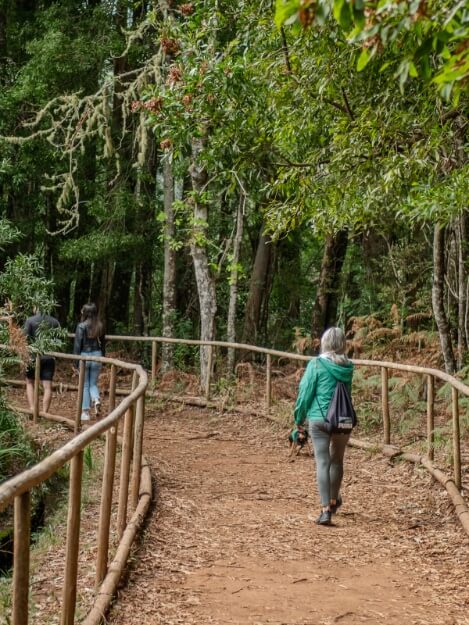From Rock to Plate: Percebes, Conger Eel & Muxía´s Coastal Life
Full Day (Duration: 8hrs approx.)
Santiago de Compostela
On Request Best Rate
- Explore Muxía & the Costa da Morte
- Muxía & the Costa da Morte Gourmet Experience
- Witness Percebe Harvesting & taste them!
- Discover Conger Eel Traditions & taste it!
General Overview
- ID: EW3407
Introduction
Muxia & the Costa da Morte: Galicia’s Wild and Sacred Coast
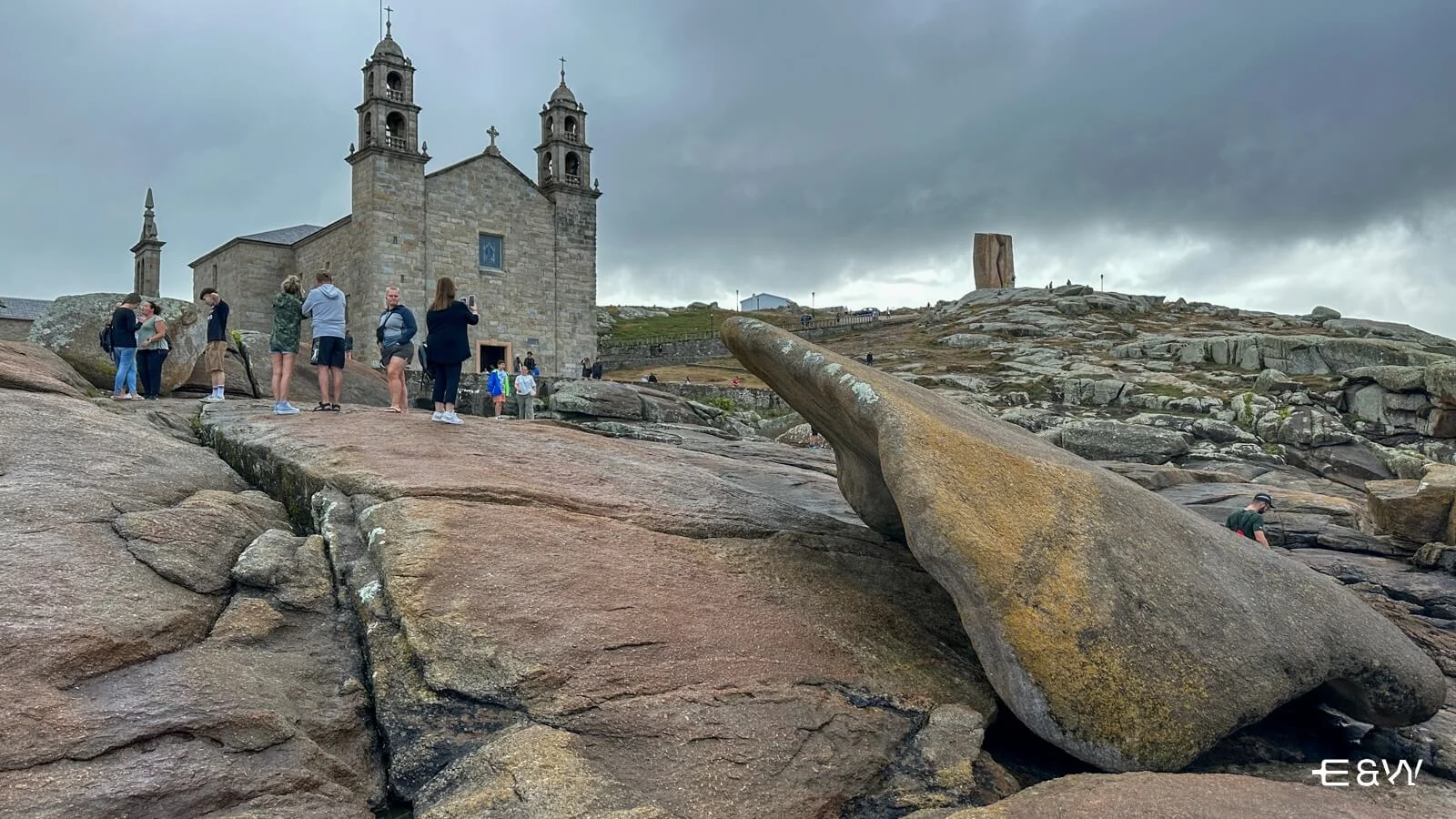
A Barca Percebe: The Legendary Barnacle Harvest of Muxía
A Barca Percebe refers to the traditional and daring harvesting of percebes (gooseneck barnacles) along the rugged coast of Muxía, Costa da Morte. This practice is deeply rooted in Galician maritime culture and is both a profession and a way of life for the brave percebeiros (barnacle hunters) who risk their lives to collect these prized delicacies from the treacherous, wave-battered cliffs.
The Meaning of "A Barca Percebe": The term "A Barca" (meaning "The Boat" in Galician) is closely tied to the legendary Sanctuary of the Virxe da Barca, which sits on the dramatic coastline of Muxía. According to local myths, the Virgin Mary arrived on a stone boat to support St. James in his evangelization efforts. Over time, this sacred connection between the sea and faith became intertwined with the identity of Muxía, influencing everything from local traditions to the perilous art of percebe harvesting.
The Perilous Harvest of Percebes: Percebes are one of the most expensive and sought-after seafood delicacies in Spain. Their high price is justified by the extreme conditions in which they grow and are harvested:
- They cling to the hardest-to-reach rocky cliffs, constantly pounded by the wild Atlantic waves.
- Percebeiros must descend onto slippery rocks, often at great personal risk, using ropes and specialized tools.
- Timing is everything—harvesting is only possible during low tide, and even then, the sea can be unpredictable and deadly.
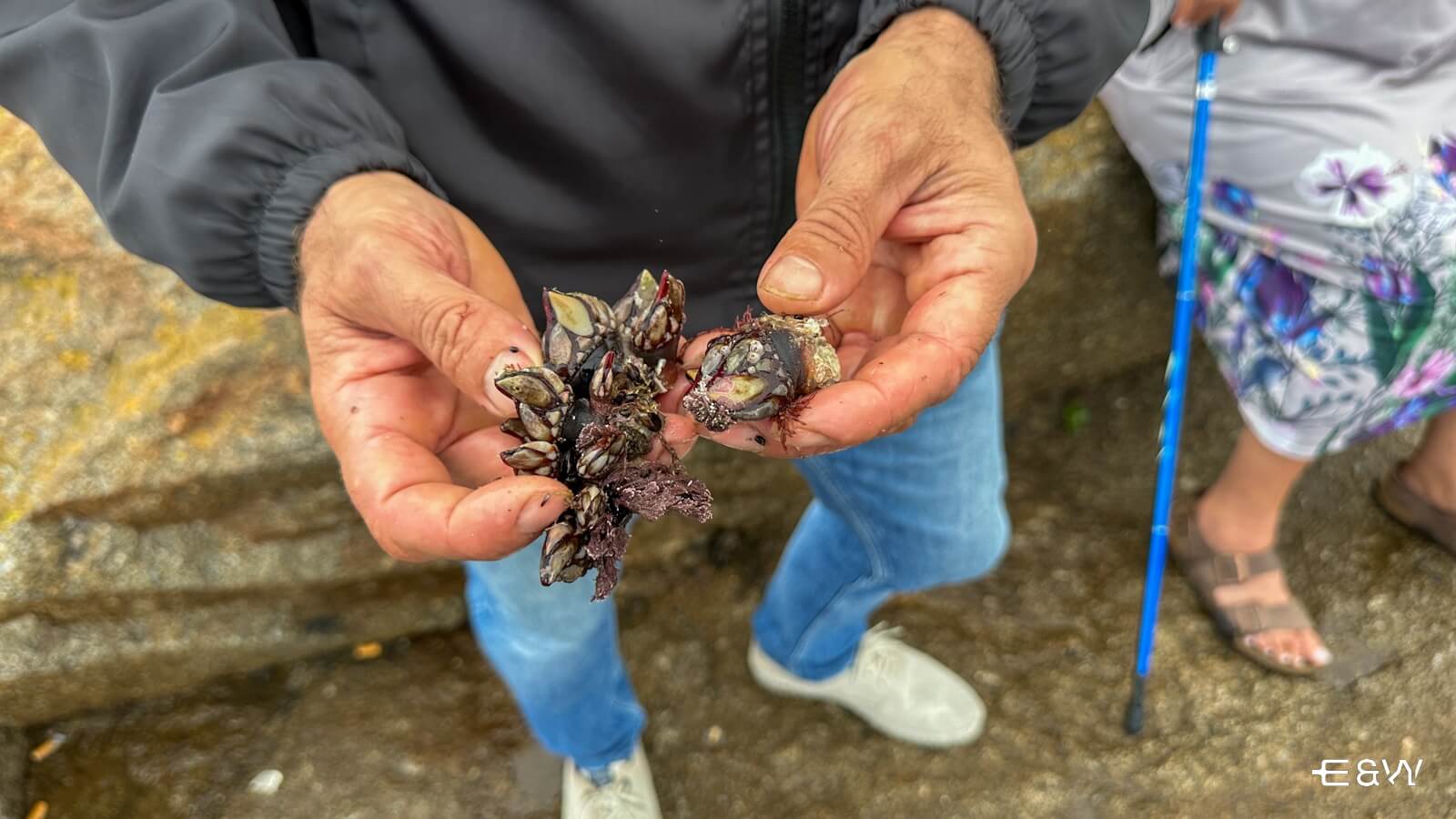
Muxia: The Heart of the Percebe Culture
Muxía is one of the most famous percebe-harvesting towns along the Costa da Morte. It is home to generations of percebeiros who have passed down their knowledge, techniques, and respect for the ocean’s power. Festivals, local seafood markets, and traditional restaurants proudly showcase the region’s rich connection to this prized seafood.
A Symbol of Resilience & Tradition
A Barca Percebe represents more than just a seafood tradition—it is a symbol of the resilience, bravery, and deep connection between Muxía’s people and the sea. It embodies the legacy of those who risk their lives for a living, the importance of sustainable fishing, and the sacred relationship between humans and nature in this mystical corner of Galicia.
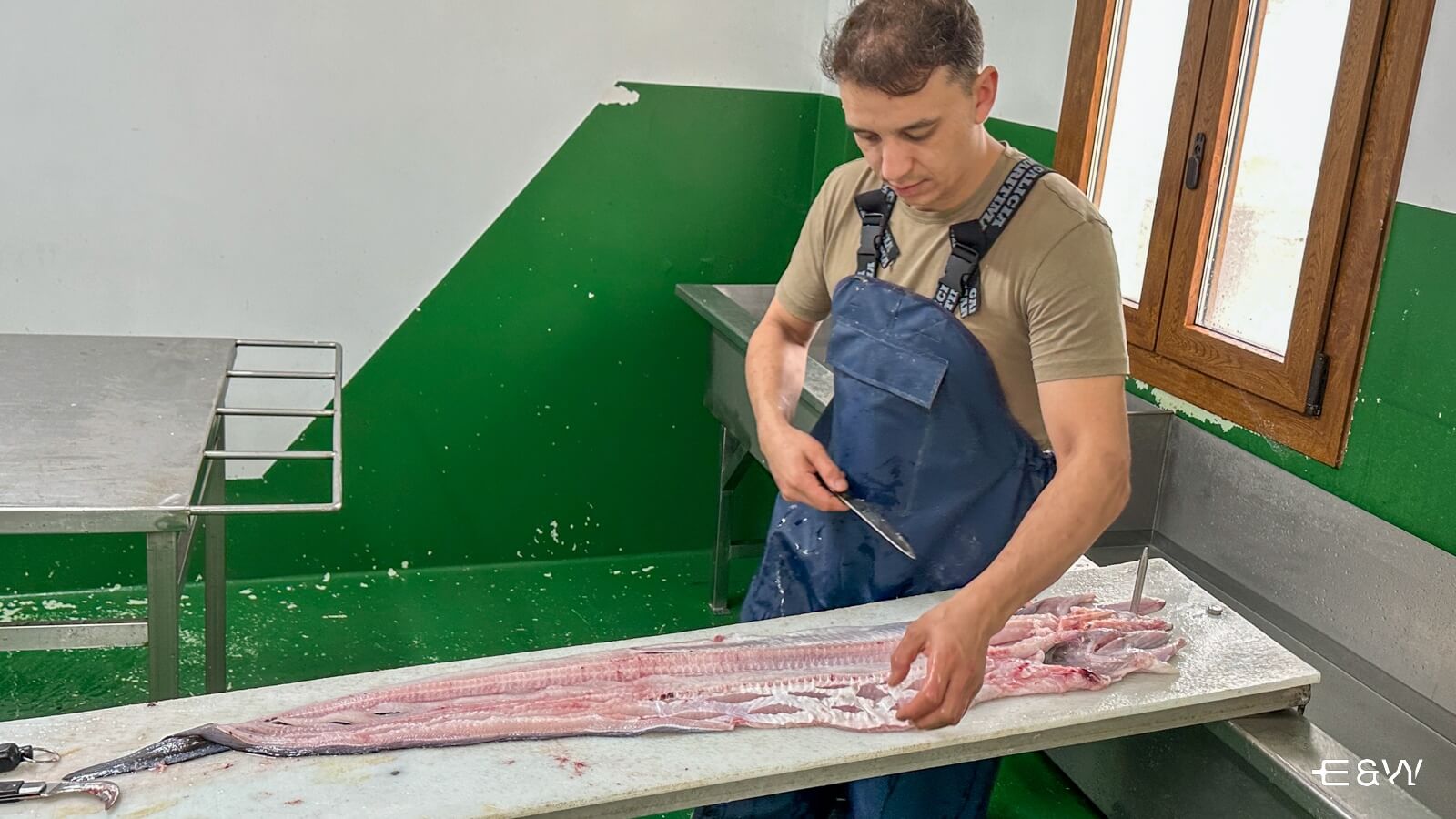
Percebes and Conger Eel: Two of Muxía’s Treasures from the Sea
1. Percebes (Gooseneck Barnacles):
Considered a delicacy in Galicia, percebes are harvested from the rocky shores of the Costa da Morte, where the waves crash violently. This makes them both rare and expensive. They are usually boiled in seawater or lightly salted water for just a couple of minutes and then eaten by peeling off the tough outer skin to reveal the tender meat inside.2. Conger Eel (Congro):
Conger eel is a traditional ingredient in Galician stews, especially in Caldeirada de Congro, a hearty fish stew that includes potatoes, onions, and paprika. Muxía is famous for its Congro Seco (dried conger eel), a specialty that has been produced for centuries. The drying process preserves the fish and gives it a unique flavor. This method originated due to the region's historical trade ties with inland areas where fresh seafood was harder to access.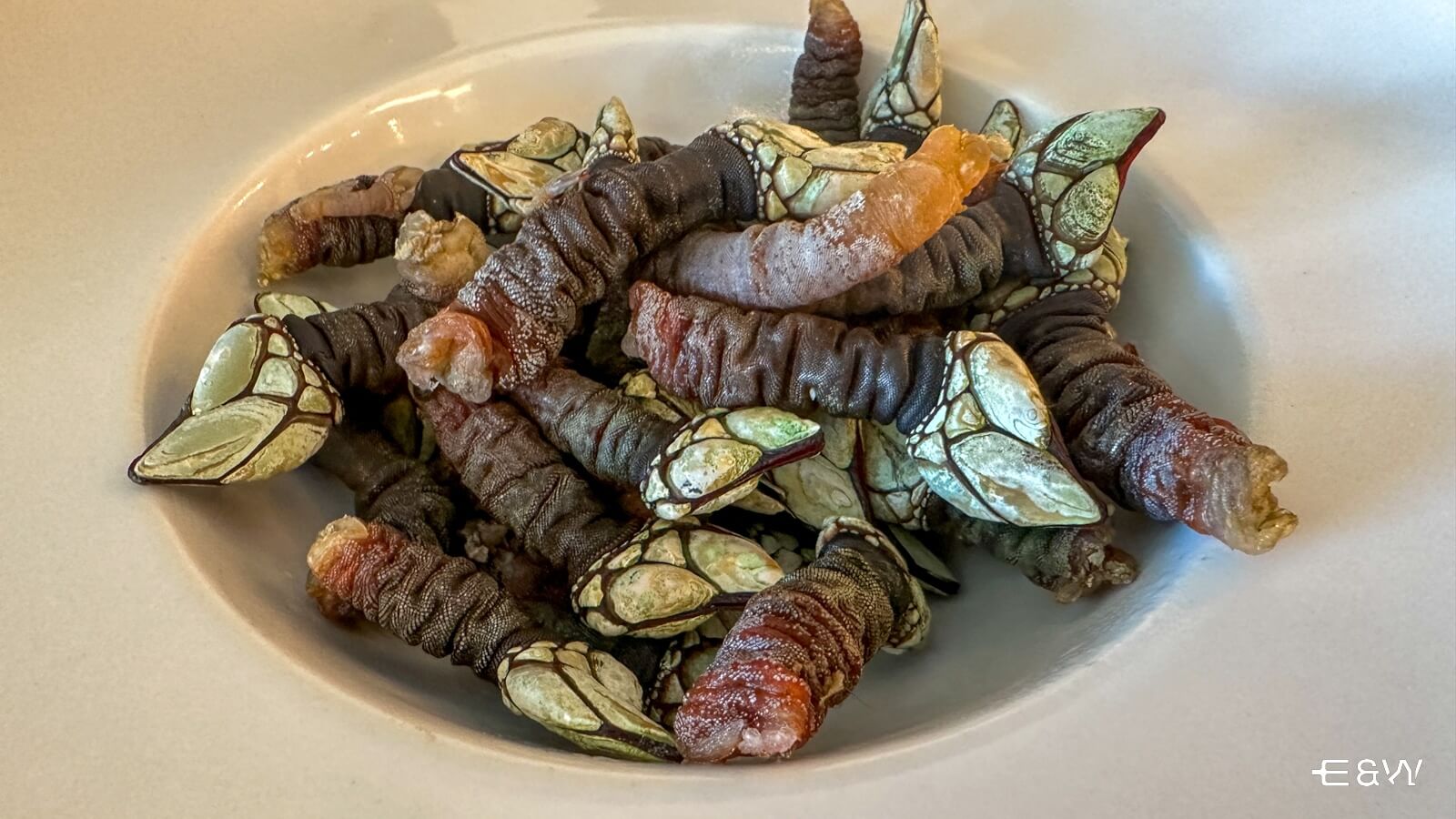
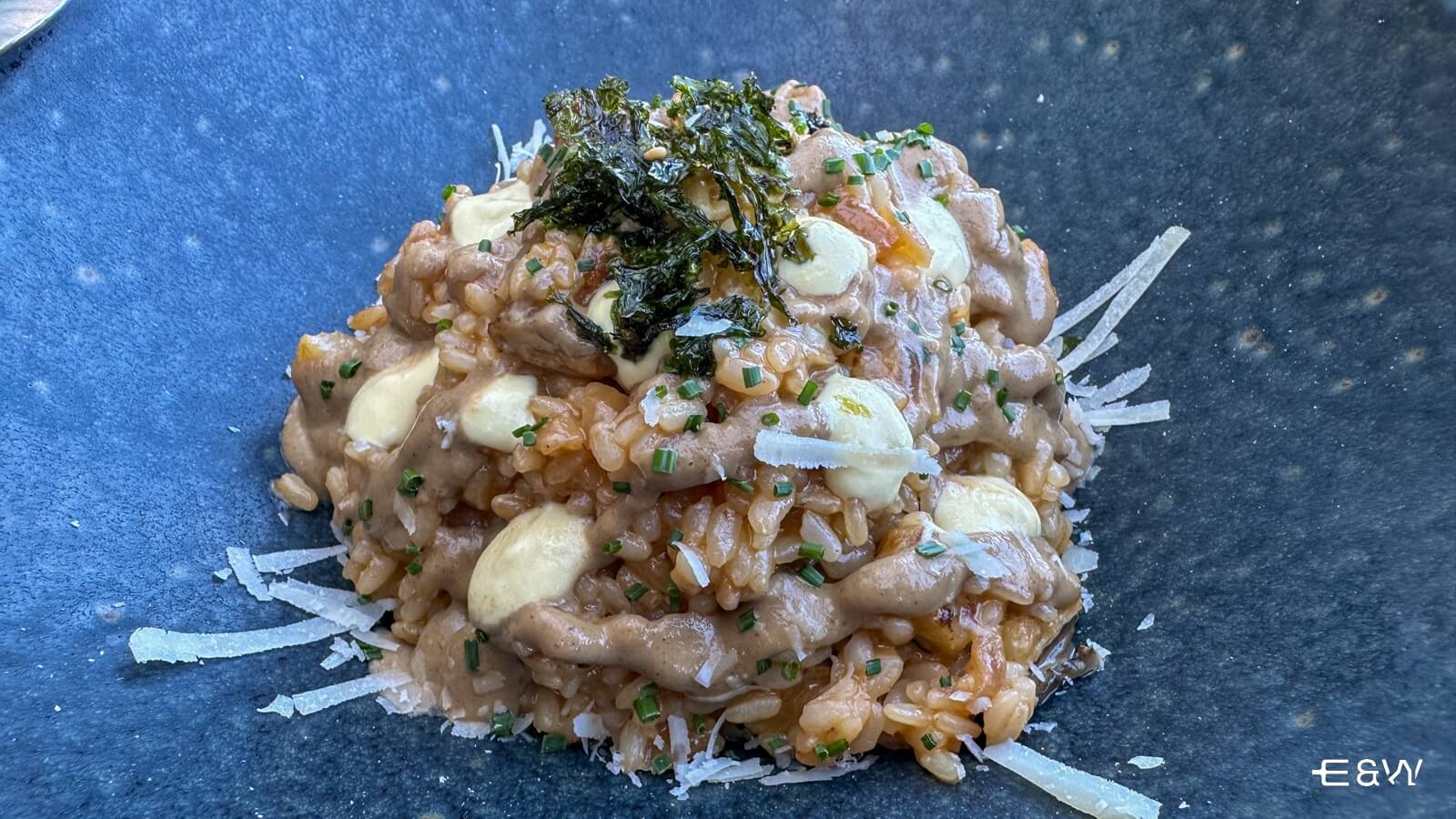
When visiting Muxía, trying percebes fresh from the sea and a dish featuring conger eel would be a must for an authentic taste of Galician maritime culture.
Day by day itinerary
DAY 1:
A CORUÑA OR SANTIAGO DE COMPOSTELA - MUXIA - A CORUÑA OR SANTIAGO DE COMPOSTELA
- 09:00AM: Your Food & Wine Expert Guide will meet your hotel in Santiago de Compostela, A Coruña, or even at the cruise ship port of A Coruña
- Travel by highway to Muxia, the village on the Coast of Death Famous for the Gose-neck Barnacles (Percebes).
- We will meet up with a local Percebeiro (Barnale Hunter) and he will take us on a walk of the Ruta de Percebe da A Barca in Muxia. Learn where they go to get the best Precebes and even how they get them off the rocks.
- Then we will visit a Secadero de Congrio (a drying house for the Conger Eel very traditional in the area)
- Lunch and tasting at a local seafood restaurant where we will taste the Perebes (Gooseneck Barnacles) and Congrio (Conger eel) (NOTE: As well option of Hake fish, etc...)
- Return back to A Coruña.
- 05:00PM: Drop off back at the cruise ship port in A Coruña and final goodbye from your foodie guides.
L
Included
- English-Speaking Gastronomic Guide for the duration of the tour.
- Transportation in a Mercedes Benz Minivan or Minibus with a driver for the duration of the tour.
- Ruta de Percebe da A Barca with a Barnacle Hunter in Muxia.
- (L ) Lunch and tasting at seafood restaurant. including a tasting menu with wine, water, etc..
- Local Taxes.
Excluded
- Transportation not specified in the itinerary.
- Meals not specified in the itinerary.
- Guided Tours are not specified in the itinerary.
- Any other expenses not mentioned in the itinerary.
- Gratuities to Guide and Driver (Not mandatory but given if you have enjoyed the service).
Pick up
- Santiago de Compostela or A Coruña city centre hotels or apartment pick-ups
- A Coruña Cruise Ship port pick-ups right at your cruise ship
- A Coruña or Santiago de Compostela Airport
- A Coruña or Santiago de Compostela Train Station
- Other pick-up locations are available on request from the surrounding towns of A Coruña and Santiago de Compostela
Drop off
- Santiago de Compostela or A Coruña city centre hotels or apartment drop offs
- A Coruña Cruise Ship port drop offs right at your cruise ship
- A Coruña or Santiago de Compostela Airport
- A Coruña or Santiago de Compostela Train Station
- Other drop offs locations are available on request from the surrounding towns of A Coruña and Santiago de Compostela
Cancellation policy
- Cancellations that are made in writing more than 72hrs before the start time will be refunded fully.
- Cancellations 72hrs or less are 100% non-refundable.


